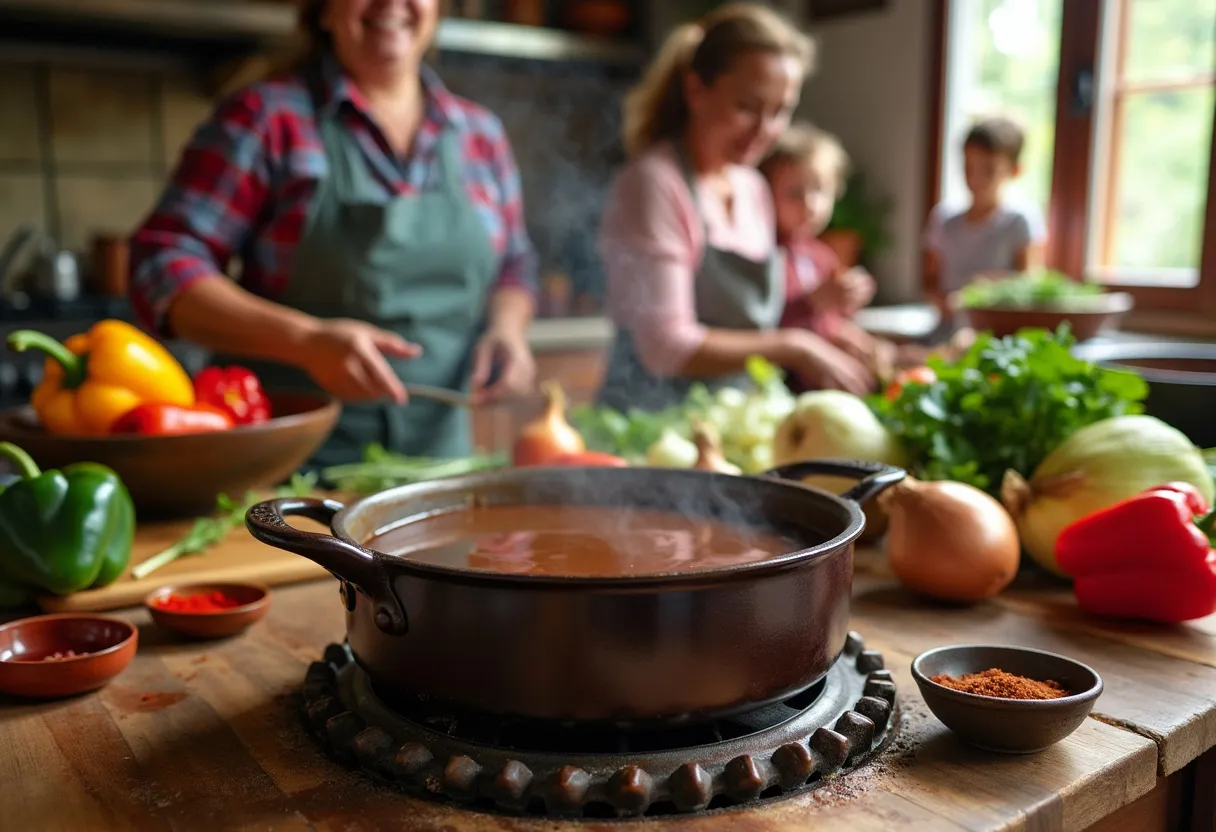
Reviving the Roux: Preserving the Heart of Cajun and Creole Cooking for Future Generations
Published on 9/21/2024
Ethan Walker • 9/21/2024
The culinary heritage of Louisiana, woven with the vibrant threads of Cajun and Creole cooking, represents more than just food; it is a testament to our cultural tapestry. The roux, the foundation of many quintessential dishes, stands as a symbol of this rich legacy. As we delve into the significance of this thickening agent, we uncover stories of resilience, creativity, and cultural exchange.
Understanding the Importance of Roux
In the simplest terms, the roux is a blend of flour and fat, cooked together to create a thickening agent. Yet, in Cajun and Creole kitchens, it's much more—it is the backbone of everything from gumbo to étouffée. Each family has its own variation, often passed down from generation to generation. The lengthy task of perfecting the roux not only binds the ingredients of these dishes but also the families who create them.
The Evolution of Roux
Cajun and Creole cuisines draw from a mix of French, West African, Spanish, and Native American influences, creating a unique culinary landscape. The roux, which originated from French culinary practices, found new life in Louisiana. Heavy use of dark, nutty browns emerged, differing from traditional French light or blonde varieties. This transformation wasn't simply a change in color; it layered in depth and complexity, which is essential for authentic gumbo.
Techniques and Tips
- Use a sturdy cast iron skillet to ensure even heating.
- Keep a close watch on cooking time using a cooking timer to avoid a burnt roux.
- Proper stirring is key—opt for a wooden spoon to prevent scratching your cookware.
Cooking as a Gateway to Storytelling
Every pot of gumbo or plate of jambalaya tells a story, echoing the voices of ancestors who whispered cooking secrets across kitchen tables. The act of creating a roux and watching it transform fits into a ritual that harmonizes with the old melodies and vibrant jigs of Cajun and Creole music.
Challenges Facing the Tradition
In today’s fast-paced world, the detailed preparation of a classic, slow-cooked gumbo may seem daunting. Modern conveniences often trim cooking time, leading many to shy away from traditional practices. Yet, therein lies our challenge and opportunity—to invite the next generation into the kitchen, not just to taste but to understand the importance of tradition.
Educational Outreach and Workshops
Our mission extends beyond writing and teaching; it’s about tangible engagement. Through educational outreach programs and cooking classes, we invest in the legacy of our cuisine. These workshops encourage cultural exchange and provide hands-on experiences for young cooks eager to learn the time-tested techniques of the past.
Why We Preserve
Preserving the traditions of Cajun and Creole cuisine is about more than food. It’s about honoring the resilience of the people, sharing joy through community, and celebrating a way of life that testifies to the rich diversity of human experience. In bringing these flavors to future generations, we don't just keep a recipe alive; we empower a culture to thrive.
The journey of the roux from its humble beginnings to a symbol of culinary fusion is a story worth savoring, recognizing the vital role that each stir, each smell, and each taste plays in keeping our shared heritage alive. As someone who has spent a lifetime savoring rich gravies and velvety sauces, I can attest that every effort to preserve these traditions is a gift that our own children and grandchildren will one day open.
Join the Movement
Join us as we continue to celebrate and preserve these culinary traditions. Whether by cooking, teaching, or sharing stories, every contribution ensures that Cajun and Creole cooking remains a thriving pillar of American cultural heritage.
Ethan Walker
Senior Chef and Cultural Food Historian | I've been cooking
Ethan was born and raised in the culturally rich city of New Orleans, where food is woven into the fabric of life. His family has passed down Cajun and Creole recipes for generations, and Ethan became passionate about preserving these culinary traditions. After working in various restaurants, he eventually opened his own eatery, which became known for its authentic gumbo, jambalaya, and beignets. Now semi-retired, Ethan teaches cooking classes and writes about the history of Southern cuisine. His mission is to ensure that traditional Cajun and Creole cooking remains vibrant for future generations.